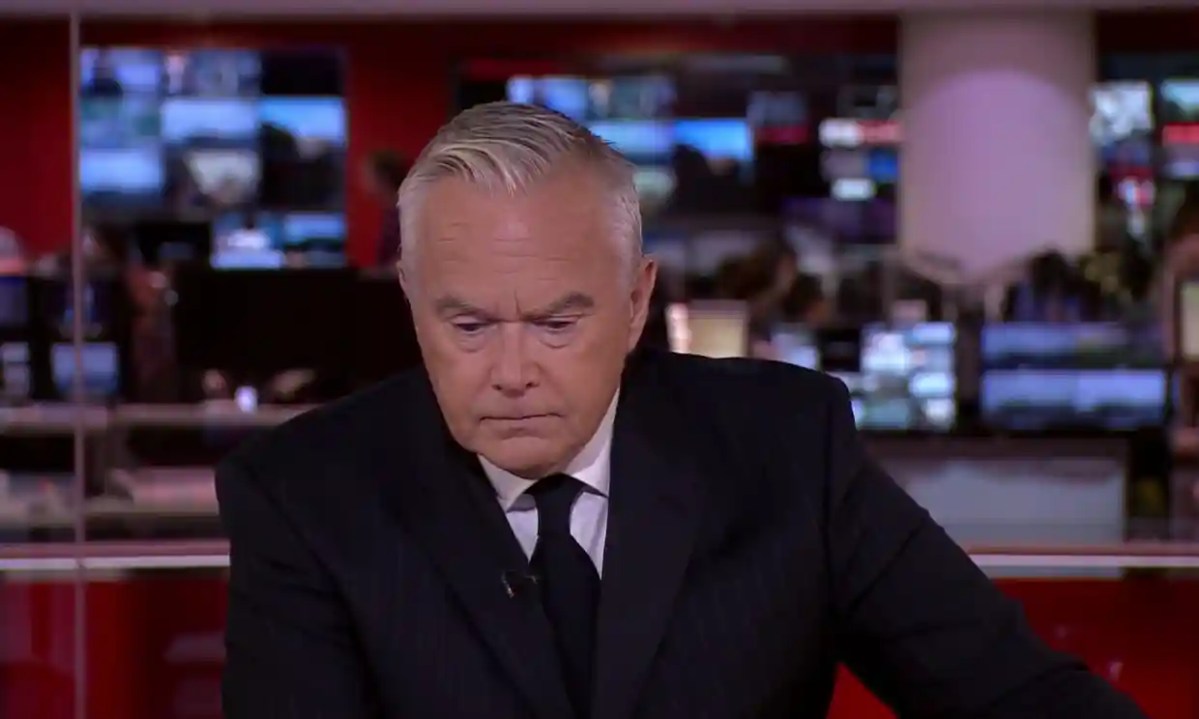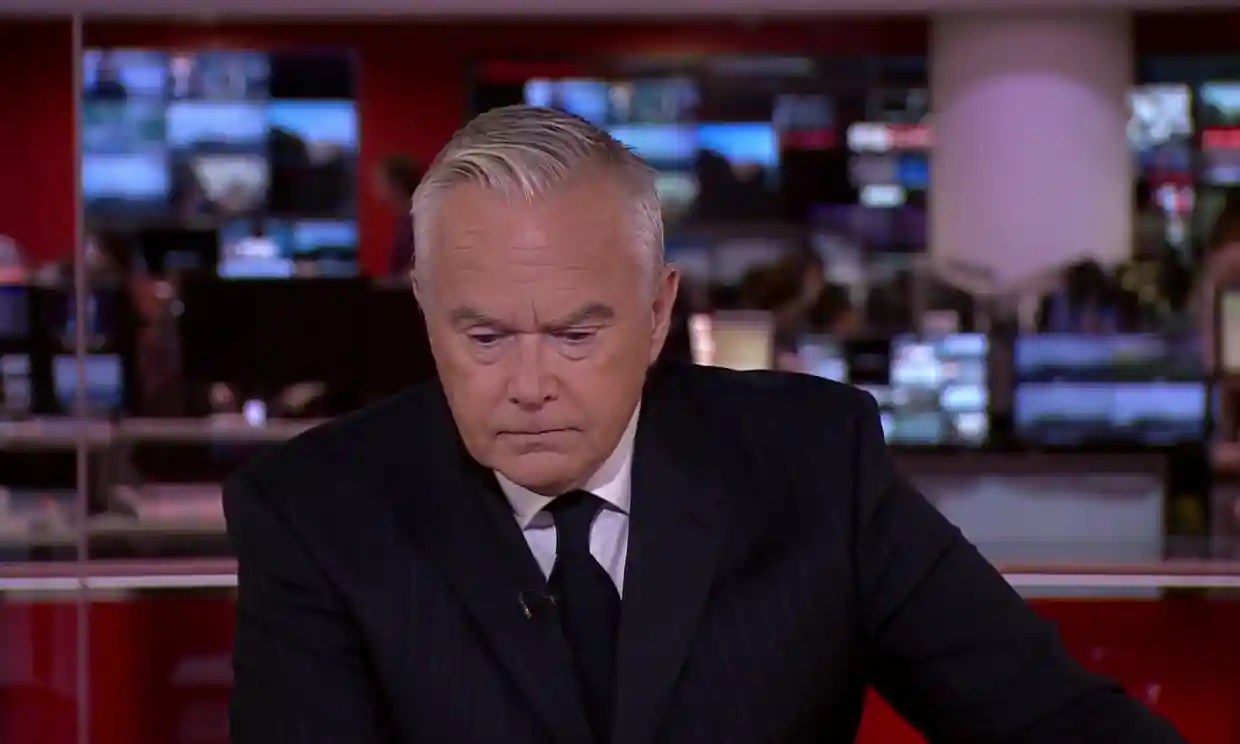It’s been a truly surreal, disturbing and darkly comic week at the BBC. Much remains obscured, but one thing is crystal clear: longstanding institutional failings over the way the Corporation handles serious complaints remain unaddressed.
On a more positive note, however, the events of the last few days have again showcased one of the BBC’s most enduring strengths: the willingness of its journalists to turn the spotlight onto their own employer, even a respected colleague. Even when that colleague is Huw Edwards, the face of the BBC, a consummate professional, a master of his craft and, until this storm engulfed him, a smiling, affable and reassuring presence at the heart of the newsroom.
Many facts remain hidden – Edwards himself is now apparently hospitalised and has yet to comment on the claims made against him. But this hasn’t been anything close to a re-run of other notorious BBC scandals. There were no whispered, ‘Well, I always thought he was dodgy’ comments among my colleagues or, ‘Well, he had it coming,’ remarks. Indeed, the opposite has been true. I haven’t heard a bad word against Edwards in all the time I have worked at the BBC.
Given this wholesome image, it’s no surprise that when the Sun first published what were initially presented as explosive allegations against a then unnamed high-profile news presenter, most of my co-workers had no idea it was Edwards. Even senior editors appeared to have no inkling.
On the morning after the Sun’s initial splash, top editorial executives interrupted their weekend plans to hold panicked meetings to discuss strategy. Nobody knew where the story would go next, and fears mounted that the Sun would name the presenter in its next edition. So began a fraught, febrile and frantic 48 hours in the newsroom by the end of which a male BBC presenter had been suspended. By now, most BBC journalists knew this was Edwards, despite no official confirmation of his identity from on high, or any public statement from the accused man. Like a broadcasting Voldemort, his name was unspoken and unstated, even in emails and text chats between colleagues.
As BBC executives came under mounting pressure to identify Edwards – to end the online accusations against other high-profile presenters – a vortex of considerations over privacy, defamation and the BBC’s duty of care to an employee created a dizzying challenge. Such was the fear of identifying Edwards accidentally, there was open disagreement between senior editorial figures in the newsroom over the wording of even anodyne internal news copy. The spectre of Sir Cliff Richard, who won a costly privacy case against the BBC in 2018, loomed large. A decision was taken that unless Edwards identified himself, the BBC would not be the first media outlet to name him.
Tim Davie’s appearance on Radio 4’s the World at One did little to quell the growing anxiety. The Director-General was quizzed about the glacial pace of the BBC’s response to complaints against Edwards that dated back to May 18. Davie said the BBC received about 250 ‘serious’ complaints in any six-month period, as if this somehow explained why apparently grave allegations against the broadcaster’s most high-profile newsreader might take so long to process. In a contender for the ‘understatement of the year award’, Davie conceded: ‘There may well be some learnings from this case.’
Undermining Davie’s claim that the BBC’s sluggish Corporate Investigations Unit was ‘outstanding’, investigative journalists within the news division demonstrated that they could work a whole lot faster. Concerned the allegations made in the Sun could be the tip of an iceberg, they uncovered more uncomfortable claims about Edwards’ conduct and published them. Newsnight did likewise.
But divisions were already emerging over the approach to the story, even within departments. I understand one senior figure within the BBC’s new verification unit, which was specially established to tackle misinformation and establish facts, didn’t want to touch the Edwards affair, despite the disquiet of some members of the team.
The narrative flipped entirely when the Metropolitan Police, which had been examining the allegations made in the Sun, announced there was no information to indicate that a criminal offence had been committed. Edwards’ wife then issued a statement naming him and saying he was in the midst of a mental health crisis and had been hospitalised. The timing of this statement, shortly before 6pm, threw running orders into chaos, with correspondents being scrambled into TV and radio studios to do live ‘hits’ on the latest developments. The Six o’clock News on BBC 1 was so befuddled it managed to announce, incorrectly, that Edwards had resigned. The focus of the story began to shift to the Sun’s editorial oversight; the paper said it would not publish any more allegations.
The whole saga has left me with a number of cheerless conclusions. One is that the BBC is still unable to react with speed when serious allegations are levelled against high profile ‘talent’. The delayed response has damaged the corporation’s reputation, caused needless distress to the complainants, and exacerbated the impact on Huw Edwards. Whatever response his conduct merits, trial by the papers and social media is surely not an optimal outcome.
When the Sun printed the claims against Huw Edwards, including the thoughts of one expert who suggested he could ‘face years in prison’, it didn’t realise it was throwing a curveball at the BBC with so much vicious spin that it would return with velocity towards its own newsroom. Both media giants have been left damaged and diminished as a result.
Meanwhile, a once revered newsman remains in hospital, his fragile state-of-mind requiring professional intervention, his reputation tarnished perhaps beyond repair. Yet, those who pointed the finger at Edwards have gained nothing, their concerns are eclipsed by fears for the welfare of the man they accused.
Huw Edwards has excelled in his professional field, telling other people’s stories with warmth, empathy and gravitas. When he is fully recovered, he will need to harness every facet of his considerable communications skillset to tell his own story. And when the BBC’s plodding investigation into his conduct finally concludes, this veteran of journalism will be hoping for some good news if he’s ever to read the nation’s headlines again.







Comments